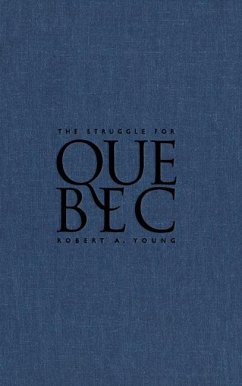
Nationalism, Capitalism, and Colonization in Nineteenth-Century Quebec (eBook, PDF)
The Upper St Francis District

PAYBACK Punkte
31 °P sammeln!
The settlements, economically based on lumber alone, were locked into poverty and dependency by Anglophone-monopoly control of the spruce forests. J.I. Little examines the ultimate failure of the British and Quebec settlement projects and argues that the stranglehold of the monopolies was broken only by the belated extension of the rail network into the Upper St Francis district. Canadians have only recently begun to question their model of company-leased Crown forest reserves and to become interested in the more efficient Scandinavian model of small-scale, privately owned woodlots. This book ...
The settlements, economically based on lumber alone, were locked into poverty and dependency by Anglophone-monopoly control of the spruce forests. J.I. Little examines the ultimate failure of the British and Quebec settlement projects and argues that the stranglehold of the monopolies was broken only by the belated extension of the rail network into the Upper St Francis district. Canadians have only recently begun to question their model of company-leased Crown forest reserves and to become interested in the more efficient Scandinavian model of small-scale, privately owned woodlots. This book is one of the first to explore the ideological contradictions and social costs which followed from the entrenchment of large-scale lumber companies in a settled zone.
Dieser Download kann aus rechtlichen Gründen nur mit Rechnungsadresse in A, B, BG, CY, CZ, D, DK, EW, E, FIN, F, GR, HR, H, IRL, I, LT, L, LR, M, NL, PL, P, R, S, SLO, SK ausgeliefert werden.













